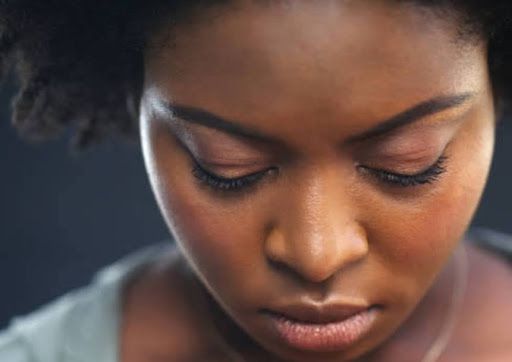Turning 30 is scary. We’ve all heard the rumours about the longer hangovers, the greying hairs, the skin starting to lose that tightness of youth, the extreme pressure to “settle down” and have kids (if you haven’t yet), and the jokes about how you’re going to start gaining weight.
As you begin approaching 30, it starts to make you feel like you’re rapidly approaching the end of your “peak.” You start freaking out that your best years are behind you or that men will no longer find you attractive. You feel forced into a life of steady ageing while a bunch of ungrateful children drain the remaining energy out of you — but not until after they’ve (gasp!) ruined your body!
I’m of course being dramatic, but that really is how some days feel as you begin to approach the dreaded 30. It feels like the end of youth. The start of ageing. And, technically, that’s true. But this is the youngest of the ageing phases, so at least there’s that.
It’s just the beginning, sister. Prepare yourself and settle in!
It’s not all downhill, though. With age comes experience, confidence, and enough skill to let you know you got this! Or, at least you’ve been through just enough crap to get the perfect “whatever” attitude (that’s very important).
I don’t know about you, but I feel 100% more confident at 25 than I did at 20. 20-year-old me was wound tight! I mean, I’m still a ball of stress, but I feel like I’ve embraced it. I’m that much closer to not being crazy.
Plus, it’s possible that sex can actually get better as you get older. So, really it could all actually get better from here.
So what do you have to look forward to as you graduate in your twenties? Check out how your body changes after turning 30 to prepare yourself for this next adventure.
Here are 7 sneaky things that happen to your body after turning 30:
1. Your chances of getting pregnant decrease
One of the biggest concerns when turning 30 (especially for women) is the issue of fertility. Obviously, this is only a concern if kids were in your life plan, but assuming they are, this is about where the panic starts to set in.
A lot of us put off having babies to better commit time to establish our careers and enjoy being young and carefree for as long as we can. But now that the dreaded three-O is just around the corner, we’re worried we’re running out of time (and eggs). And, well, it might be justified that we’re concerned.
According to Brian A. Levine, MD, who works with CCRN (leaders in research on fertility), not all women’s fertility is the same. However, he suggests that female fertility begins to decline as early as 32 (yikes!).
He also notes that “simply having plenty of eggs doesn’t mean your fertility is healthy. Egg quality is controlled by several factors; however, as women age, their eggs are more at risk for having abnormal chromosomes that lower egg quality. This can affect whether or not fertilization will occur and is also the main cause of miscarriage.”
Dr Levine says there is some hope for those of us in our 20’s not quite ready for babies, though. He says that healthy lifestyle choices in your 20s can help maintain fertility into your 30s. Namely, “avoiding foods like white rice and white sugar which cause inflammation, as well as limiting toxic habits like too much alcohol will all positively impact a woman’s fertility down the road.”
2. Your hair starts thinning — and might even go grey
I don’t know about you, but I remember my mother getting her first grey hair in her 30s and I’m not ready for it! It’s lower on my list of concerns, but it’s still a concern. Really, what freaks me out is that, like, all your hair can go grey (yes, ALL of it!).
According to New York Dermatologic surgeon and RealSelf contributor Dr Sejal Shah, even eyebrows are affected! As you age, not only can the hair on your head thin and begin to turn grey but so can your eyebrows. Plus, due to the decrease in elasticity in your skin, they can change position slightly as well.
3. Your bones weaken
In all honesty, I don’t think about this one too much. But it’s not a positive aspect of growing older and I wouldn’t say I’m not bothered by the statistics on ageing, bones, and women. I’m just going to go drink milk now.
According to Dr Hodon, (a board-certified OBGYN, author, and speaker, “Your bone strength reaches its max at 30 years for women and bone loss thereafter that can lead to fractures later on.”
4. Your metabolism slows
I’ve always been thin, so for me, the biggest terror of the “dirty 30” is that my days of not having to overly worry about my fat consumption are soon to be behind me (Please God?! No!!!). We’ve all heard the theories behind metabolism slowing down and the increased difficulty in keeping weight off. Personally, I’m not looking forward to it.
According to Dr Hodon, a slowed metabolism can also lead to the onset of greying hair and fine lines and wrinkles.
5. Wrinkles start showing up
According to Manhattan dermatologist and RealSelf contributor Dr Joshua Zeichner, “skin cell turnover starts to slow down” in your 30s as well as collagen production. So, Dr Ziechne says this is the “ideal time to add on a topical retinoid to your anti-ageing regimen in the evening,” which will help stimulate collagen production and help the skin resist wrinkling.
The plus side? He says that acne tends to become less of an issue in your 30s. However, the skin tends to remain oily.
Tip: Dr Zeichner says that the earlier you start an anti-wrinkle regimen the better. He recommends Neutrogena Rapid Wrinkle Repair Serum and CeraVe Facial Foaming Cleanser (to help with oily skin).
6. Your menstrual cycle might change
Oh, good. And I thought my period was “irregular” now. Ugh.
According to Dr Hodon, your menstrual cycle can also change after turning 30. Dr Hogon says that the “decrease of important hormones such as estrogen and progesterone affects the menstrual cycle that can lead to irregular, heavier or lighter periods and can cause havoc in [woman’s] lives. Some women even start peri-menopause, the stage before menopause, earlier in their 30s. This stage also includes varying menstrual cycles, mood changes, and infertility.”
7. You’re at an increased risk of disease
According to Raymond J. Tesi, MD, CEO and co-founder of INmune Bio, something coined as “inflammaging” occurs as we get older (i.e. inflammation that happens as we age). This phenomenon is what causes “age-related diseases,” like cancer.
“It is because the sum total of years of chronic inflammation results in biology that is pathologic,” Tesi explains. “So inflammaging starts early, but the consequence of inflammaging becomes clinically relevant as we pass into our sixth decade of life.”
So, there’s still time. Dr Tesi recommends doing these things as early as possible:
- “Do not smoke. Smoking tobacco is a guaranteed fast-track ticket to inflammaging.”
- “Control your weight. Obesity hurts you in many ways. One of the more subtle medical burdens of obesity is an increased risk of inflammaging.”
- “Exercise regularly. Exercise stimulates resolution biology, the biologic process of shutting down chronic inflammation.”
- “I can also recommend getting plenty of sleep and lowering stress, but then I begin to sound like your mother.”
Also, according to Omaha Dermatologic Surgeon Dr Joel Schlessinger, your risk of melanoma goes up with age. He says that “melanoma is one of the most common cancers for young adults and it’s the leading cause of cancer-related death for women 25 to 30 years old.”
According to the Melanoma Research Alliance, there are things you can do to prevent skin cancer, such as:
- Avoid sun exposure during mid-day
- Wear sun protection (sunscreen that is water resistant, broad spectrum and water resistant and covering clothing)
- NO tanning beds!!
















